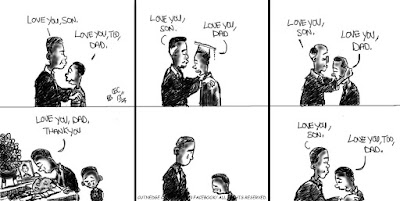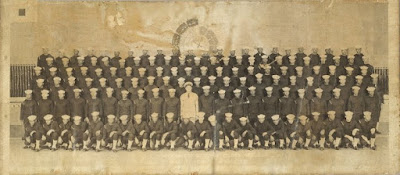
Topics: Civics, Civil Rights, Civilization, Democracy, Diaspora, Existentialism, Fascism
Eugenics is the scientifically inaccurate theory that humans can be improved through selective breeding of populations.
Eugenicists believed in a prejudiced and incorrect understanding of Mendelian genetics, which claimed abstract human qualities (e.g., intelligence, and social behaviors) were inherited in a simple fashion. Similarly, they believed complex diseases and disorders were solely the outcome of genetic inheritance.
The implementation of eugenics practices has caused widespread harm, particularly to populations that are being marginalized.
Eugenics is not a fringe movement. Starting in the late 1800s, leaders and intellectuals worldwide perpetuated eugenic beliefs and policies based on common racist and xenophobic attitudes. Many of these beliefs and policies still exist in the United States.
The genomics communities continue to work to scientifically debunk eugenic myths and combat modern-day manifestations of eugenics and scientific racism, particularly as they affect people of color, people with disabilities, and LGBTQ+ individuals.
Eugenics, and Scientific Racism – The National Human Genome Research Institute. https://www.genome.gov/about-genomics/fact-sheets/Eugenics-and-Scientific-Racism
Stare decisis was the Latin term for “precedent” that every Supreme Court Justice candidate invoked to assure their Senate inquisitors that any laws decided in the past were “on the books” and not up to modern interpretation, or revocation.
Roe vs. Wade was overturned in 2022, part of the “Stare decisis” precedent of previously passed laws. The approval of the Court is at the lowest in its history.
“There has to be some form of punishment,” someone said.
Without any data, we could only speculate that women without wealth, and women without means would bear the brunt of losing bodily autonomy more than women with means, which are usually, ethnographically, in the current white majority.
There are now casualties of this ethno-gender war.
*****
At least two women in Georgia died after they couldn’t access legal abortions and timely medical care in their state, ProPublica has found. This is one of their stories.
In her final hours, Amber Nicole Thurman suffered from a grave infection that her suburban Atlanta hospital was well-equipped to treat.
She’d taken abortion pills and encountered a rare complication; she had not expelled all the fetal tissue from her body. She showed up at Piedmont Henry Hospital in need of a routine procedure to clear it from her uterus, called a dilation and curettage, or D&C.
But just that summer, her state had made performing the procedure a felony, with few exceptions. Any doctor who violated the new Georgia law could be prosecuted and face up to a decade in prison.
Thurman waited in pain in a hospital bed, worried about what would happen to her 6-year-old son, as doctors monitored her infection spreading, her blood pressure sinking and her organs beginning to fail.
It took 20 hours for doctors to finally operate. By then, it was too late.
Abortion Bans Have Delayed Emergency Medical Care. In Georgia, Experts Say This Mother’s Death Was Preventable. Kavitha Surana, ProPublica
*****
Candi Miller’s family said she didn't visit a doctor “due to the current legislation on pregnancies and abortions.” Maternal health experts deemed her death preventable and blamed Georgia’s abortion ban.
Candi Miller’s health was so fragile, that doctors warned having another baby could kill her.
“They said it was going to be more painful and her body may not be able to withstand it,” her sister, Turiya Tomlin-Randall, told ProPublica.
But when the mother of three realized she had unintentionally gotten pregnant in the fall of 2022, Georgia’s new abortion ban gave her no choice. Although it made exceptions for acute, life-threatening emergencies, it didn’t account for chronic conditions, even those known to present lethal risks later in pregnancy.
At 41, Miller had lupus, diabetes, and hypertension and didn’t want to wait until the situation became dire. So, she avoided doctors and navigated an abortion on her own — a path many health experts feared would increase risks when women in America lost the constitutional right to obtain legal, medically supervised abortions.
Miller ordered abortion pills online, but she did not expel all the fetal tissue and would need a dilation and curettage procedure to clear it from her uterus and stave off sepsis, a grave and painful infection. In many states, this care, known as a D&C, is routine for both abortions and miscarriages. In Georgia, performing it had recently been made a felony, with few exceptions.
Her teenage son watched her suffer for days after she took the pills, bedridden and moaning. In the early hours of Nov. 12, 2022, her husband found her unresponsive in bed, her 3-year-old daughter at her side.
Afraid to Seek Care Amid Georgia’s Abortion Ban, She Stayed at Home and Died. Kavitha Surana, ProPublica
It took us two years to discover the victims’ identities of this judicial malpractice.
“There has to be some form of punishment,” someone said.
As hypothesized, the women affected are part of a marginalized demographic that could not fly out of Georgia and get sophisticated surgery in a “free” state that still allowed the medical procedure. It took months from the decision to murder these black women. It took two years for us to get the results of supreme spitballing.
There must be more who lost their lives in 2022. There must be more who lost their lives in 2023. There must be more who will lose their lives this year, and next year.
We are eighteen years from 2042 when for the first time in the history of the Census, the designed “white majority” will be numerically, in the minority.
The first census asked just six questions: the name of the (white, male) householder, and then the names of all the other people in the household, divided into these categories: Free white males who were at least 16 years old; free white males who were under 16 years old; free white females; all other free persons; and slaves. The census reflected the values of the United States in 1790: “Slaves were counted as three-fifths of a person. Indians weren’t counted until 1870,” Glass writes.
“The results were used to allocate Congressional seats… electoral votes and funding for government programs,” writes Jeremy Norman for HistoryofInformation.com. The United States Census Bureau also acknowledges that the precise enumeration of free white males was intended “to assess the country’s industrial and military potential.”
The First US Census Only Asked Six Questions
America’s founders agreed that the census was important, but it wasn’t long. Kat Eschner, Smithsonian
Chapter 2, page 33, subsection titled:
Numerical Population Power
In a democratic society, the numerical majority wins, rules, and decides. The theoretical rights of a minority may or may not be respected, especially if they are a planned minority. Numerical population power is the power that comes to those groups that acquire power through their sheer size. The black population peaked in the 1750s when slaves and free blacks accounted for approximately 33 percent of the total population. The high numerical strength of blacks caused fear and concern among whites. They feared the loss of their numerical power. Word of black Haitians' successful slave revolt in the 1790s had spread across America and reportedly ignited several slave revolts in Southern states. The First U.S. Congress enacted the first naturalization law that declared America to be a nation for “whites only.” The Naturalization Act and other income incentives attracted a mass influx of legal and illegal European ethnicities, followed by Asian and Hispanic immigrants a century later. The immigration quota for blacks remained zero until their total percentage of the population declined to nine percent. By making blacks a planned numerical minority, white society assured its dominance in a democratic society where the majority always wins. Source: Black Labor, White Wealth, Dr. Claude Anderson, 1991.
Eugenics is not a fringe movement. Starting in the late 1800s, leaders and intellectuals worldwide perpetuated eugenic beliefs and policies based on common racist and xenophobic attitudes. Many of these beliefs and policies still exist in the United States.
“You have good genes, you know that, right? You have good genes. A lot of it is about the genes, isn’t it, don’t you believe? The racehorse theory? You think we’re so different. You have good genes in Minnesota.”
Trump’s ‘good genes’ speech echoes racial eugenicsm, Gregory J. Wallance, The Hill, September 25, 2020
White supremacy is demonstrably, historically, pathologically, and anxiously numerical.
I weep for Amber and Candi, two black women who were casualties in a war that preceded their births, and the births of their children, and came with our shackled ancestors on Jamestown shores in 1619. It is not just the nation’s “original sin,” it is the foundational framework of psychopathy, and we are trying to pretend that this is “normal,” like school shootings, we should redefine school shootings as “abortions after birth,” that doesn’t happen in similarly industrialized western nations. I am fighting for democracy, because in the never-ending pursuit of a “more perfect union,” we haven’t achieved it yet.
We are deluding ourselves that we have ever achieved the mythical utopia of the “promised land.” For a better future, for all that we now call Americans, we still have work to do.


